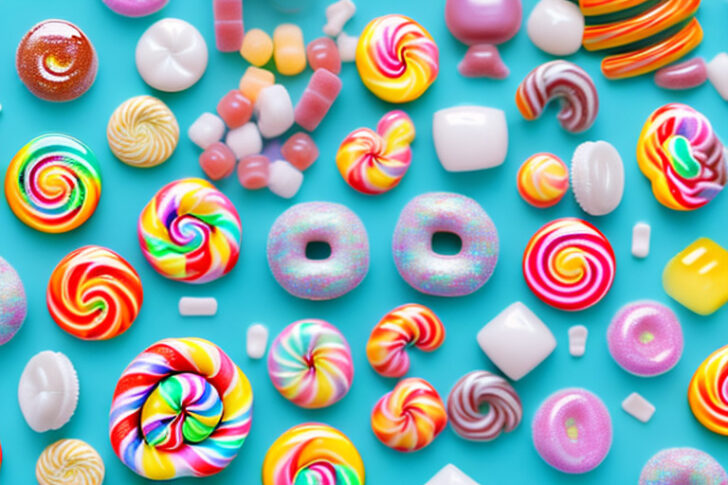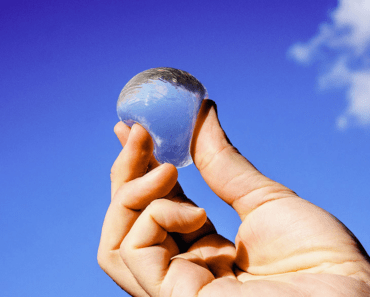In today’s modern society, sweets have become a staple in many people’s diets. From chocolate bars to gummy candies, these sugary treats are often indulged in without much thought to their impact on oral health.
Contents
- 1 Understanding the Basics: Teeth and Sugar Interaction
- 2 The Role of Sugar in Oral Health
- 3 How Sweets Affect Teeth: The Science Explained
- 4 Different Types of Sweets and Their Impact on Teeth
- 5 The Long-Term Effects of Sugar on Oral Health
- 6 Prevention and Treatment of Sugar-Related Dental Issues
- 7 Conclusion
However, the truth is that sweets can have a significant effect on teeth, leading to a variety of dental issues.
In this comprehensive guide, we will explore the relationship between sweets and teeth, understanding the basics, different types of sweets, their long-term effects, and ways to prevent and treat sugar-related dental problems.
So grab a seat and let’s dive into the fascinating world of the impact of sweets on teeth!
Understanding the Basics: Teeth and Sugar Interaction
Before we delve into the effects of sweets on teeth, it’s important to understand the basics of the interaction between sugar and oral health.

When we consume sugary foods and beverages, the bacteria in our mouths feed on the sugars, producing acid as a byproduct.
This acid then attacks the tooth enamel, the protective outer layer of our teeth, leading to tooth decay and cavities.
The frequency and amount of sugar consumed play a crucial role in determining the severity of the damage.
The Role of Sugar in Oral Health
Sugar plays a significant role in the development of oral health issues. It provides the necessary fuel for the harmful bacteria in our mouths to thrive and multiply.
When these bacteria feed on sugar, they produce acid that erodes the tooth enamel, weakening its structure. Over time, this can lead to cavities, tooth sensitivity, and even tooth loss if left untreated.
It’s important to note that not all sugars are created equal when it comes to oral health. While natural sugars found in fruits and vegetables can still contribute to tooth decay if consumed in excess, they are generally less harmful than added sugars found in processed foods and beverages.
Added sugars, such as those in sodas, candies, and desserts, are more likely to cause rapid and severe damage to the teeth due to their higher concentration and prolonged exposure.
Furthermore, the form in which sugar is consumed also affects its impact on oral health. Consuming sugary liquids, such as soda or fruit juices, can be particularly harmful as they tend to linger in the mouth for longer periods, providing a continuous supply of sugar for bacteria to feed on.
Sticky sweets, like caramel or gummy candies, also pose a higher risk as they can adhere to the teeth, prolonging the exposure to sugar and increasing the likelihood of tooth decay.
How Sweets Affect Teeth: The Science Explained
When we consume sweets, the sugars enter our mouths and mix with saliva, forming a sticky film called plaque. This plaque acts as a breeding ground for bacteria, which feed on the sugars and produce acid.
The acid then eats away at the enamel, creating tiny holes called cavities. If left untreated, these cavities can progress deeper into the tooth, causing pain and discomfort.
In addition to cavities, the acid produced by sugar consumption can also lead to tooth sensitivity. As the enamel wears away, the underlying layers of the tooth become exposed, making them more susceptible to temperature changes and certain foods or drinks.
It’s worth noting that our oral health is influenced by various factors beyond sugar consumption alone. Poor oral hygiene practices, such as infrequent brushing and flossing, can allow plaque and bacteria to accumulate, exacerbating the effects of sugar on teeth.
Additionally, genetic factors, certain medications, and underlying health conditions can also impact the susceptibility of our teeth to sugar-related damage.
To maintain optimal oral health, it is crucial to practice good oral hygiene habits, limit the consumption of sugary foods and beverages, and visit a dentist regularly for check-ups and professional cleanings.
By understanding the intricate relationship between sugar and teeth, we can make informed choices and take proactive steps to protect our smiles.
Different Types of Sweets and Their Impact on Teeth
Not all sweets are created equal when it comes to their impact on dental health. Let’s take a closer look at the different types of sweets and how they affect teeth.
Hard Candies and Oral Health

Hard candies, such as lollipops or jawbreakers, pose a dual threat to oral health. Firstly, they are usually consumed slowly, allowing the sugars to linger in the mouth for an extended period and increasing the risk of acid build-up.
This acid can erode the tooth enamel, leading to tooth decay and cavities. Additionally, biting down on hard candies can cause dental emergencies like chipped or broken teeth. It’s important to consume hard candies in moderation and practice good oral hygiene afterward.
On the bright side, some hard candies contain xylitol, a natural sweetener that has been shown to reduce the risk of tooth decay.
Xylitol stimulates saliva production, which helps neutralize acids in the mouth and remineralize teeth. So, if you’re going to indulge in hard candies, look for ones that contain xylitol to minimize the potential harm to your teeth.
The Effects of Chewy Sweets on Teeth

Chewy sweets, like caramels or gummy bears, stick to the teeth for longer durations, providing a steady supply of sugars for bacteria to feast on.
Prolonged exposure to sugar increases the likelihood of tooth decay and cavities. When you chew on these sticky treats, they can also get lodged in the crevices and grooves of your teeth, making it difficult for saliva and brushing to remove them completely.
However, not all chewy sweets are created equal. Some brands now offer sugar-free versions of popular chewy candies, which can be a better option for dental health.
These sugar-free alternatives are often sweetened with natural sweeteners like stevia or erythritol, which do not contribute to tooth decay. It’s essential to brush your teeth after consuming chewy sweets or rinse your mouth thoroughly to minimize the potential damage.
Sugar-Free Sweets: Are They Really Better?
Sugar-free sweets have gained popularity in recent years as an alternative to traditional sugary treats. While they don’t contain actual sugar, they often contain artificial sweeteners, which can also contribute to tooth decay if consumed excessively.
However, sugar-free sweets are generally a better option for dental health since they don’t provide the fuel necessary for bacteria to thrive. As with any food, moderation is key.
It’s important to note that some sugar-free sweets, especially those labeled as “sugar-free gum,” can actually be beneficial for dental health.
Chewing sugar-free gum stimulates saliva production, which helps wash away food particles and neutralize acids in the mouth. This can reduce the risk of tooth decay and promote better oral health overall.
When choosing sugar-free sweets, it’s always a good idea to check the ingredient list and opt for those that use natural sweeteners instead of artificial ones.
Natural sweeteners like xylitol or stevia have been shown to have fewer negative effects on dental health compared to artificial sweeteners like aspartame or sucralose.
In conclusion, while all sweets can have an impact on dental health, some types are more harmful than others. Hard candies and chewy sweets, especially those high in sugar, can increase the risk of tooth decay and cavities.
Sugar-free sweets, although not completely risk-free, are generally a better option for dental health. Remember to consume sweets in moderation, practice good oral hygiene, and consider alternatives like sugar-free gum to promote better oral health.
The Long-Term Effects of Sugar on Oral Health
The effects of sugar on oral health go beyond the immediate damage caused by cavities and tooth sensitivity. Let’s explore the long-term consequences of excessive sugar consumption.
Cavities and Tooth Decay: A Sugar-Induced Problem
Cavities and tooth decay are among the most prevalent oral health problems worldwide, with excessive sugar consumption being a primary contributing factor.
When left untreated, cavities can progress deeper into the tooth, leading to severe pain, infection, and even tooth loss.
It’s crucial to address cavities promptly through dental treatments such as fillings or root canal therapy to prevent further complications.
Gum Disease: Is Sugar to Blame?
Gum disease, also known as periodontal disease, is a serious condition that affects the gums and surrounding structures of the teeth. Excessive sugar consumption can contribute to the development and progression of gum disease by promoting bacterial growth and inflammation.
It’s essential to maintain good oral hygiene and seek professional dental care if you notice signs of gum disease, such as bleeding gums or persistent bad breath.
Tooth Loss and Sugar: The Hidden Connection
Tooth loss is a significant consequence of the long-term effects of sugar on oral health. As tooth decay and gum disease progress, the structural integrity of the teeth and supporting tissues can become compromised, leading to tooth loss.
Additionally, excessive sugar consumption often goes hand in hand with poor oral hygiene habits, further increasing the risk of tooth loss. Regular dental check-ups and a healthy lifestyle can help preserve your natural teeth for years to come.
Prevention and Treatment of Sugar-Related Dental Issues
The good news is that there are several steps you can take to prevent and treat sugar-related dental problems. Let’s explore some of the most effective strategies.
Daily Oral Care: Tips for a Sugar-Safe Routine
The cornerstone of maintaining good oral health is practicing effective daily oral care. Brushing your teeth at least twice a day with fluoride toothpaste and using dental floss or interdental brushes to clean between your teeth are essential steps in removing plaque and preventing cavities. Additionally, consider using a mouthwash to rinse away any leftover sugars and bacteria.
Regular Dental Check-ups: Why They Matter
Regular dental check-ups are crucial for identifying and addressing any sugar-related dental issues in their early stages. Dentists can perform thorough cleanings to remove plaque and tartar buildup, as well as provide professional treatments such as fluoride application or dental sealants to strengthen the teeth and protect against cavities. Don’t skip those bi-annual dental check-ups!
Treatments for Sugar-Related Dental Problems
If you’re already experiencing sugar-related dental issues, fear not! Modern dentistry offers a range of treatments to restore your oral health. From fillings and root canal therapy for cavities to periodontal treatments for gum disease, dentists can provide personalized solutions to address your specific needs. The key is to seek professional dental care as soon as possible to prevent further damage and complications.
Conclusion
Sweets have a significant impact on teeth and overall oral health. Understanding the basics of the teeth and sugar interaction, the different types of sweets and their effects, and the long-term consequences of excessive sugar consumption is essential for making informed choices about our diets.
By practicing proper oral care, attending regular dental check-ups, and seeking professional treatments when needed, we can maintain a healthy smile and prevent sugar-related dental problems. So remember, indulge in sweets in moderation, and always prioritize your oral health!
You May Like: Easy Food Science Experiments to Do at Home


